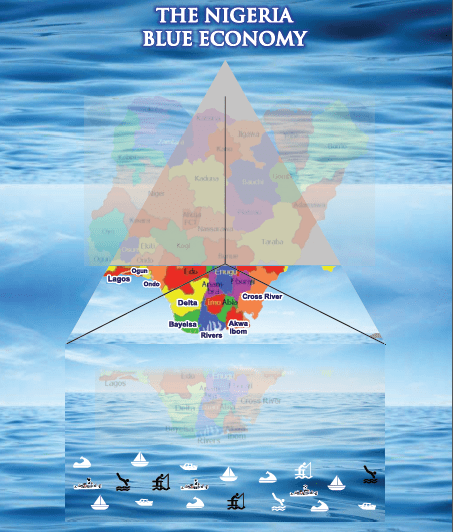Economy
Harnessing Financial Inclusion for Economic Growth, by Isah Aliyu Chiroma

The International Financial Inclusion Conference (IFIC) 2024 took place on November 12–13 in Lagos, Nigeria, assembling global stakeholders to delve into the transformative potential of financial inclusion. Focusing on the theme “Inclusive Growth: Harnessing Financial Inclusion for Economic Development,” the conference acted as a vital platform, rallying participants to utilize financial inclusion as a crucial instrument for poverty reduction, economic empowerment, and national development.
As financial inclusion evolves from a mere ideal to a critical enabler of economic growth, this year’s conference emphasized the substantial impact it can have on marginalized communities, particularly women, youth, and Micro, Small, and Medium Enterprises (MSMEs). These groups often face systemic barriers that exclude them from formal financial systems, consequently limiting their ability to contribute to economic activities.
One of the standout initiatives launched at IFIC 2024 was the Women Financial Inclusion Dashboard. Along with the Women Entrepreneurs Finance Code, these groundbreaking tools aim to significantly reduce gender disparities in financial access. By providing improved opportunities for credit, savings, and insurance tailored for women, these initiatives are set to unlock their entrepreneurial potential, foster gender equality, and drive broader social development.
The conference highlighted the role of youth as pivotal players in Nigeria’s economic future. Recognizing that young people are critical to the sustainability and diversification of the economy, discussions centered on the essential nature of financial education programs. By equipping younger generations with financial literacy, the conference aimed to ensure informed decision-making and promote long-term economic well-being, ultimately empowering them to participate actively within the financial ecosystem.
MSMEs, which account for over 80% of employment in Nigeria, were also a focal point of the conference discussions. Enhanced access to credit and technology-driven financial solutions is vital for unleashing the potential of these enterprises, which have been historically underfunded. Central Bank of Nigeria (CBN) Governor Yemi Cardoso stressed the necessity of updated capital requirements for banks to bolster their capabilities in serving underserved markets effectively.
The role of technology as a cornerstone in achieving financial inclusion goals emerged prominently throughout the event. Various innovations in fintech, mobile money, and digital identity systems were highlighted as transformative tools that can significantly improve access to financial services, particularly for marginalized populations in rural areas. Digital platforms have revolutionized how financial services are delivered, providing efficient and affordable alternatives to traditional banking methods.
Moreover, the establishment of a robust digital identity framework is crucial for promoting access to financial services. By ensuring verifiable identities for individuals, such frameworks can greatly facilitate formal economic participation for millions of Nigerians who currently face barriers to accessing basic financial services.
Despite noteworthy progress, the conference recognized that challenges remain. Infrastructure issues, such as inconsistent electricity supply and limited internet connectivity, still pose significant obstacles to the widespread adoption of digital financial solutions. The ongoing need for investment in critical infrastructure is paramount for scaling up digital finance initiatives.
Additionally, a 2023 survey revealed that 40% of financial transactions in Nigeria remained unresolved, leading to a concerning erosion of trust in digital financial systems. To mitigate these issues, enhancing data security, streamlining payment systems, and implementing robust regulatory frameworks were identified as essential steps for rebuilding confidence among users.
The conference also highlighted the importance of promoting financial literacy to empower individuals in their financial decision-making. Targeted education programs are necessary to fill knowledge gaps and address misconceptions about financial services, ultimately helping to foster a more informed consumer base.
The significance of public-private partnerships in advancing financial inclusion was underscored throughout the conference. Collaborative efforts between governments, financial institutions, fintech companies, and civil society are crucial for cultivating a supportive ecosystem that encourages innovation and expands access to financial services. A successful partnership between the Central Bank of Nigeria (CBN) and the World Bank was showcased as a model for effectively addressing payment inefficiencies, enhancing consumer protection, and regulating microfinance institutions. These combined efforts aim to bolster trust and efficiency within Nigeria’s financial systems.
Recent strides in financial inclusion metrics reflect a positive trajectory. Currently, financial inclusion rates in Nigeria have improved from 68% in 2020 to 74% in 2023. However, achieving the ambitious target of 95% inclusion requires sustained and concerted efforts from all stakeholders involved. One such committed initiative is the CBN’s roadmap aimed at improving the financial inclusion of forcibly displaced persons (FDPs), which illustrates a dedication to leaving no one behind. This initiative is designed to reduce barriers to financial services for displaced individuals, ultimately empowering them to gain stability and rebuild their lives.
Governor Babajide Sanwo-Olu of Lagos State emphasized the necessity of human-centered, technology-driven solutions to broaden financial inclusion across the state. His remarks underscored that financial inclusion transcends mere access—it is fundamentally about empowering individuals to thrive both economically and socially.
In alignment with President Bola Ahmed Tinubu’s vision of restructuring Nigeria’s economy to reach the ambitious goal of achieving a $1 trillion economy, stakeholders were encouraged to prioritize policies that support financial inclusion initiatives. These policies should integrate technology and innovative solutions while ensuring that financial services are accessible, equitable, and effective for all citizens, reinforcing the country’s position as a burgeoning financial hub in Africa.
IFIC 2024 served as a powerful reminder of the imperative to harness financial inclusion as a tool for economic growth and social empowerment. Through collaborative efforts, innovative solutions, and a commitment to addressing the barriers faced by underrepresented groups, Nigeria can pave the way toward a more inclusive and prosperous future.



























